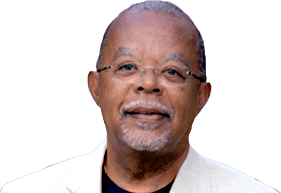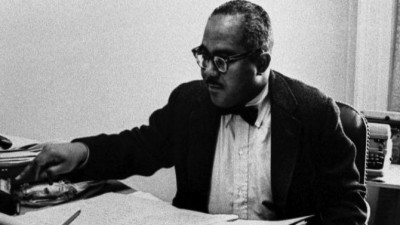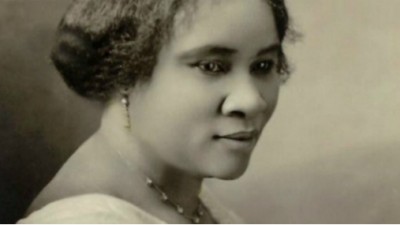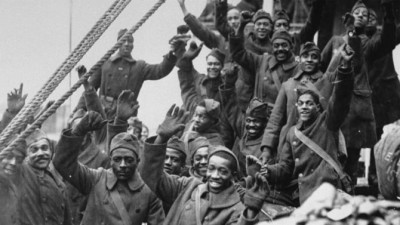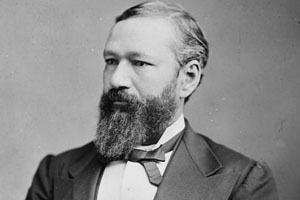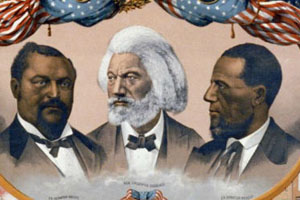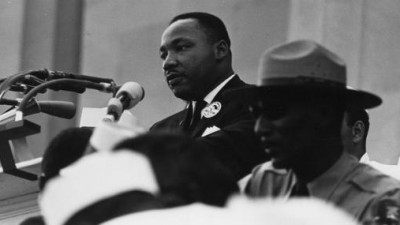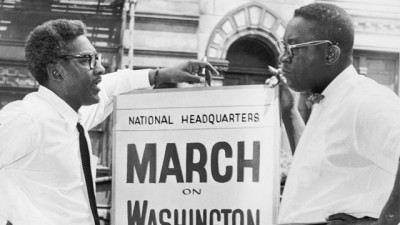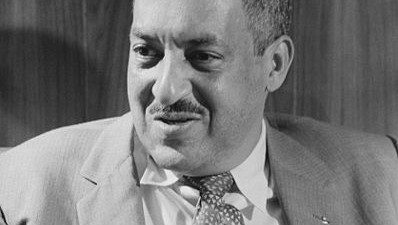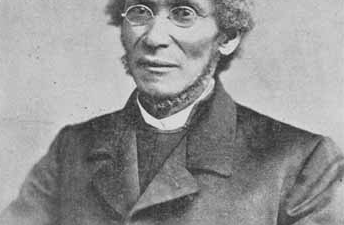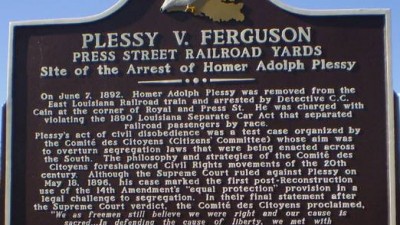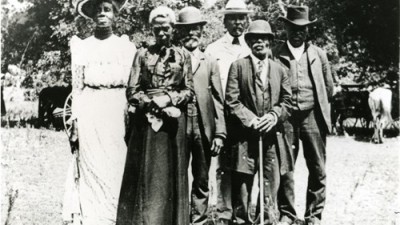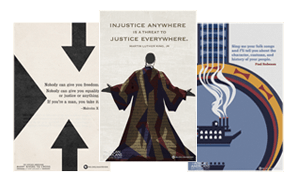Henry Louis Gates, Jr.'s
100 Amazing Facts About the Negro
Who Were the African Americans in the Kennedy Administration?
In the first six months of the Kennedy Administration, some 50 black men (and women) were appointed to executive branch jobs.Madam Walker, the First Black American Woman to Be a Self-Made Millionaire
Madam C.J. Walker, the first black millionairess in America, invented the world’s first hair-straightening formula. Continue reading
Who Were the Harlem Hellfighters?
These black soldiers returning from World War I received a hero’s welcome, by blacks and whites alike, in New York City. Continue reading
The Black Governor Who Was Almost a Senator
Why didn’t more than one black person serve in the Senate during the Reconstruction era — a condition that persisted until this year? Continue reading
Cory Booker and the First Black Senators
Iin 1870, the senators in power after the Civil War had to settle a fundamental question when it came to seating Hiram R. Revels, the first black senator-elect: Was it too soon, according to the Constitution, for any black man to be legally entitled to serve? Continue reading
’12 Years a Slave’: Trek From Slave to Screen
As a literary scholar and cultural historian who has spent a lifetime searching out African Americans’ lost, forgotten and otherwise unheralded tales, I was honored to serve as a historical consultant on Steve McQueen’s 12 Years a Slave, most certainly one of the most vivid and authentic portrayals of slavery ever captured in a feature film. Continue reading
Did MLK Improvise in the ‘Dream’ Speech?
Looking at his prepared speech at the March on Washington, Dr. Martin Luther King, Jr. balked when he reached this mouthful of a sentence: “And so today, let us go back to our communities as members of the international association for the advancement of creative dissatisfaction.” Instead, he transformed his speech into a sermon. Continue reading
Who Designed the March on Washington?
If you had been a bus captain en route to the March on Washington for Jobs and Freedom in August 1963, you would have known who its organizing genius was, and you wouldn’t have been surprised to see his picture on the cover of Life magazine a week later. Yet of all the leaders of the civil rights movement, Bayard Rustin lived and worked in the deepest shadows, not because he was a closeted gay man, but because he wasn’t trying to hide who he was. That, combined with his former ties to the Community Party, was considered to be a liability. Continue reading
What Was the Civil Rights Movement?
A silly question, right? I thought so, too, until I learned that in the year 2010, only 2 percent of 12th graders received full credit in identifying the following quote on the National Assessment of Educational Progress U.S. History Exam: ” … Separate education facilities are inherently unequal.” The 12,000 students tested didn’t need to come up with the name Brown v. Board of Education, mind you — just know it had something to do with 1.) segregation 2.) in the nation’s schools — yet a stunning 73 percent either skipped it or received an “inappropriate” score. Continue reading
Free Blacks Lived in the North, Right?
Most of us know that before the American Civil War there were so-called slave states and free states. Knowing this, our minds fill in the map with logic. If such a line as “Mason-Dixon” existed (actually, there were a series of lines drawn by “compromising” Congresses throughout the first half of the 19th century), slaves must have resided below it and free black people above it, with every man, woman and child in chains trying to escape to the North just as soon as they could — following the proverbial North Star to a new life of unbounded opportunity — while those already up there remained vigilant against being kidnapped back into slavery down in the South. Continue reading
‘Plessy v. Ferguson’: Who Was Plessy?
‘How many mysteries have begun with the line, “A man gets on a train … “? In our man’s case, it happens to be true, and there is nothing mysterious about his plan. His name is Homer Plessy, a 30-year-old shoemaker in New Orleans, and on the afternoon of Tuesday, June 7, 1892, he executes it perfectly by walking up to the Press Street Depot, purchasing a first-class ticket on the 4:15 East Louisiana local and taking his seat on board. Nothing about Plessy stands out in the “whites only” car. Had he answered negatively, nothing might have. Continue reading
What Is Juneteenth?
When a general announced in Texas that slaves were free, he had no idea that, in establishing the Union Army’s authority over the people of Texas, he was also establishing the basis for a holiday, “Juneteenth” (“June” plus “nineteenth”), today the most popular annual celebration of emancipation from slavery in the United States. Continue reading
Find educational resources related to this program - and access to thousands of curriculum-targeted digital resources for the classroom at PBS LearningMedia.
Visit PBS Learning Media